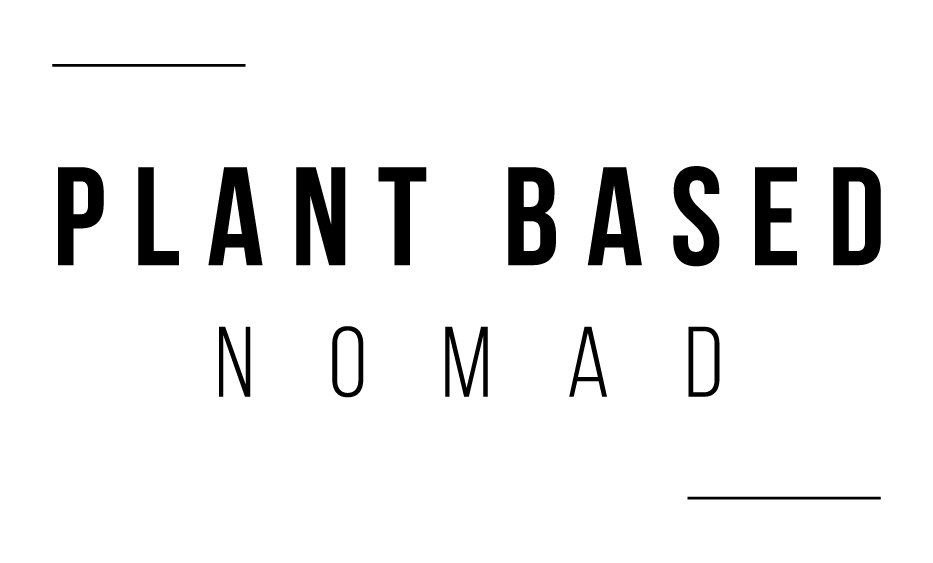
Vegan or Plant-Based: What Are The Differences?
‘Veganism’ and ‘plant-based’ are buzzwords that have taken over the internet by storm. It might seem like every time you scroll through Facebook or Instagram, there’s someone deep-diving into or at least mentioning these words.
And of course, that’s a good thing. That means that society as a whole is trending toward generally eating more plants and eating fewer animal products. With all of the environmental and moral issues we’ve been having, this is refreshing change that is much needed. #bringiton
Vegan and plant-based are used together––or interchangeably––this must mean that they mean the same thing, right? After all, plant-based sounds a lot like what a vegan eats anyway.
Well, the short answer is: not quite. Veganism and plant-based are two terms that––although relative––have completely different meanings.
Today, let’s take a look at those differences in more detail so you can go forward using them correctly and deciding which of the two you want to identify as. FYI: We would absolutely love it if you chose veganism, but either is a major upgrade from the traditional way of eating!
What is veganism?
The original definition of veganism is diet only. Here’s what the original definition of veganism was, as defined by Donald Watson––founding member of the Vegan Society and the person responsible for creating the term ‘vegan’:
“We should all consider carefully what our Group, and our magazine, and ourselves, shall be called. ‘Non-dairy’ has become established as a generally understood colloquialism, but like ‘non-lacto’ it is too negative. Moreover, it does not imply that we are opposed to the use of eggs as food. We need a name that suggests what we do eat, and if possible one that conveys the idea that even with all animal foods taboo, Nature still offers us a bewildering assortment from which to choose. ‘Vegetarian’ and ‘Fruitarian’ are already associated with societies that allow the ‘fruits’ (!) of cows and fowls, therefore it seems we must make a new and appropriate word. As this first issue of our periodical had to be named, I have used the title “The Vegan News”. Should we adopt this, our diet will soon become known as a VEGAN diet, and we should aspire to the rank of VEGANS. Members’ suggestions will be welcomed. The virtue of having a short title is best known to those of us who, as secretaries of vegetarian societies have to type or write the word vegetarian thousands of times a year!”
However, over time (and thanks to passionate vegan activists) this definition has changed to define a lifestyle rather than a diet.
Veganism today is defined as a philosophy that is deeply compassionate about animal rights, where those who follow this philosophy choose to eliminate all aspects of animal consumption, exploitation, or harm from their lifestyle. This includes buying leather, eating honey, and even supporting any product or business that tests on animals.
What is plant-based?
As mentioned earlier, plant-based simply refers to a style or preference of dieting. Plant-based is related to what we consume only. It is a lifestyle that avoids all animal products including eggs, meat, dairy, honey, and other animal byproducts, while consisting of minimally processed whole plant foods and nothing else.
Not only do people on a true plant-based diet avoid eating meat, but they also avoid eating any processed or excessively prepared foods as well––even if the food comes from plants.
So…what’s the big difference?
Perhaps the best way to explain why these two terms are different is because one of them (veganism) describes a way of living beyond just the diet, and the other (plant-based) specifically describes a way of eating.
While plant-based diets are technically vegan in nature, they are not considered to be the same thing as vegan. Plant-based diets are adopted simply for health reasons rather than out of deep compassion for animals.
Furthermore, plant-based foods can be considered vegan in nature, but there are many vegan foods that wouldn’t be considered plant-based. For example, Oreos, french fries, and Swedish Fish––which are all technically vegan–- would not be considered plant-based since they are not in their original and unprocessed form.
You can also be plant-based while still wearing leather and other animal products, which disqualifies you from being a vegan.
So there you have it. These two terms, while related, are totally different and truly unique in their own right. So which one do you consider yourself to be?

